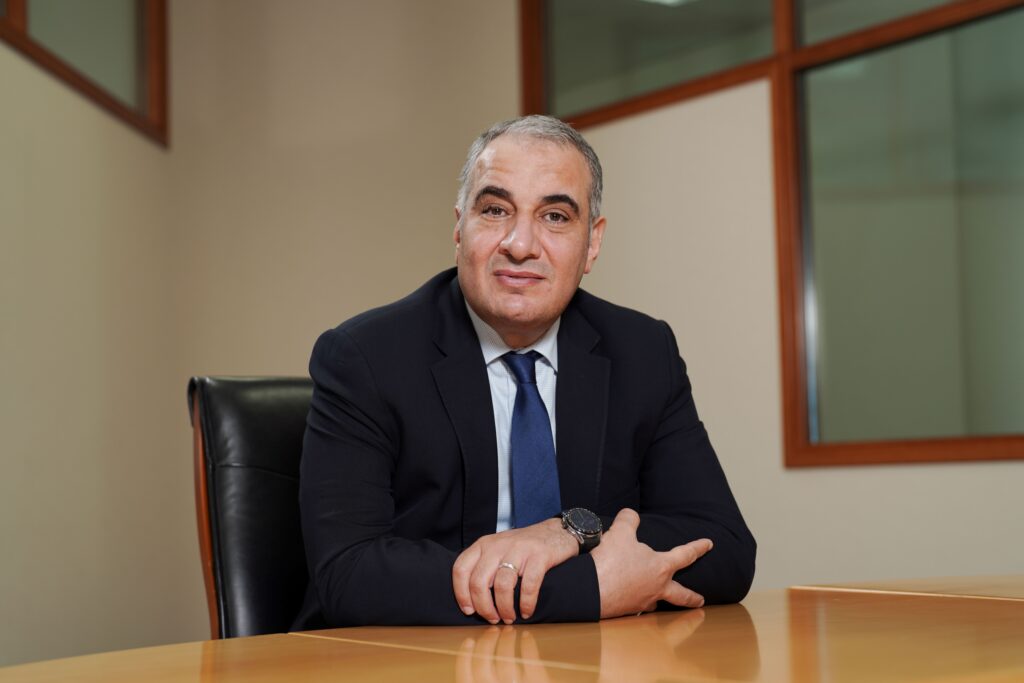
Could you share some highlights of the company’s journey so far?
This year, we are proudly celebrating 40 years of excellence, marking a legacy of impactful contributions to the UAE’s digital transformation journey since its establishment in 1984. As a leading systems integrator, we have consistently been at the forefront of introducing and implementing innovative technologies, collaborating with global providers to deliver engineered and re-engineered solutions customised to the needs of our clients. Our partnerships with global technology providers have allowed us to bring cutting-edge solutions to our clients in industries like defence, healthcare, education, oil and gas, and government services. These contributions have earned recognition and trust from enterprises and government organisations alike, cementing our position as a leader in the ICT sector. As a team of highly skilled professionals, we have successfully delivered complex projects, combining cutting-edge software and hardware solutions. As a result, we are recognised as one of the top five systems integrators and solutions providers not only in the UAE but also across the GCC and Middle East region.
You’ve been with ITQAN since 1998. How has the systems integration industry evolved over the years?
The ICT industry has always been highly dynamic, evolving in response to global trends and technological shifts. Since the 1990s, when organisations prioritised PCs and local networks, ITQAN has been instrumental in driving transformation initiatives. Starting with office operations and extending into areas like document management systems, healthcare information systems, e-commerce, and e-government, ITQAN has consistently adapted to the changing landscape. Over the past 25 years, we have played a key role in significant transformations, such as the shift from web-based government services to mobile platforms and, more recently, to data analytics and AI-driven solutions. The UAE market’s quick adoption of these global trends has allowed us to stay at the forefront of innovation, particularly in cybersecurity, a core focus area for the company. In addition, our leadership in AI initiatives is exemplified by its subsidiary, Digital Okta, launched in 2016. This cloud-first company has leveraged Microsoft Azure and other cloud platforms to drive AI-powered solutions. These initiatives include deploying cloud-based AI for enhanced organisational operations, data fabric solutions, and tools like co-pilot systems to optimise back-office and user-facing functionalities. By capitalising on AI and cloud computing, we continue to deliver transformative solutions, empowering clients to harness technology for operational efficiency and strategic growth.
What do you think are the key challenges in the journey of digital transformation?
Digital transformation presents unique challenges, particularly in aligning business goals with technological initiatives. We believe that transformation must be business-driven and supported by IT. Organisations need to first define their competitive goals and then leverage technology to achieve them. This perspective has shifted the role of IT leaders, positioning CIOs as strategic partners on par with CFOs and COOs. The emergence of roles like Chief AI Officers, especially in Dubai’s government, reflects this evolution. However, resistance to change remains a significant challenge. Digital transformation necessitates buy-in from all stakeholders, as projects that lack alignment between technology and its users often fail. Technology should be seen as an enabler, not a mandate, ensuring that transformation efforts are goal-oriented and impactful. Successful transformations highlight the power of well-defined goals and technological enablement. Companies like Uber, which revolutionised transportation, and food delivery platforms that expanded restaurant capacities, exemplify this principle. These successes stem from leveraging cloud computing, AI, data analytics, and mobile technology to address specific business challenges. Similarly, industries such as sports, agriculture, healthcare, banking, and defence have harnessed real-time data and analytics to drive innovation and efficiency. For instance, in Formula 1, real-time data from car sensors enhances driver performance during races. Ultimately, transformation is about aligning vision, technology, and strategy to drive measurable business outcomes
How does ITQAN stay ahead of the curve in such a competitive landscape?
At ITQAN, we pride ourselves on offering a comprehensive portfolio of cybersecurity services, spanning advisory, deployment, implementation, training, and post[1]deployment support. Our approach emphasises understanding the client’s specific threats and business needs, rather than relying solely on off-the-shelf technologies. We focus on creating a harmonious integration of various technologies to deliver the most effective solutions. This differentiates us from others in the market, as we are not simply product sellers but partners in cybersecurity transformation.
What are your thoughts on the future of AI and other emerging technologies?
AI continues to grow and evolve, with advancements over the past year including conversational AI like ChatGPT, CoPilot, Google Bard, and many others. These tools have permeated various industries and use cases, driving significant transformations. More recently, generative AI has emerged, representing the next evolution of artificial intelligence. The future of AI will likely involve further innovations, adapting to new demands and applications while staying true to its core purpose: enabling intelligent automation and decision-making. However, AI’s efficiency relies heavily on proper data. Without well-structured, managed, and accessible data, AI cannot deliver meaningful benefits. Data readiness, including strong data science foundations, remains a critical first step in any AI initiative, ensuring that the technology can function effectively and deliver tangible results.









Discussion about this post